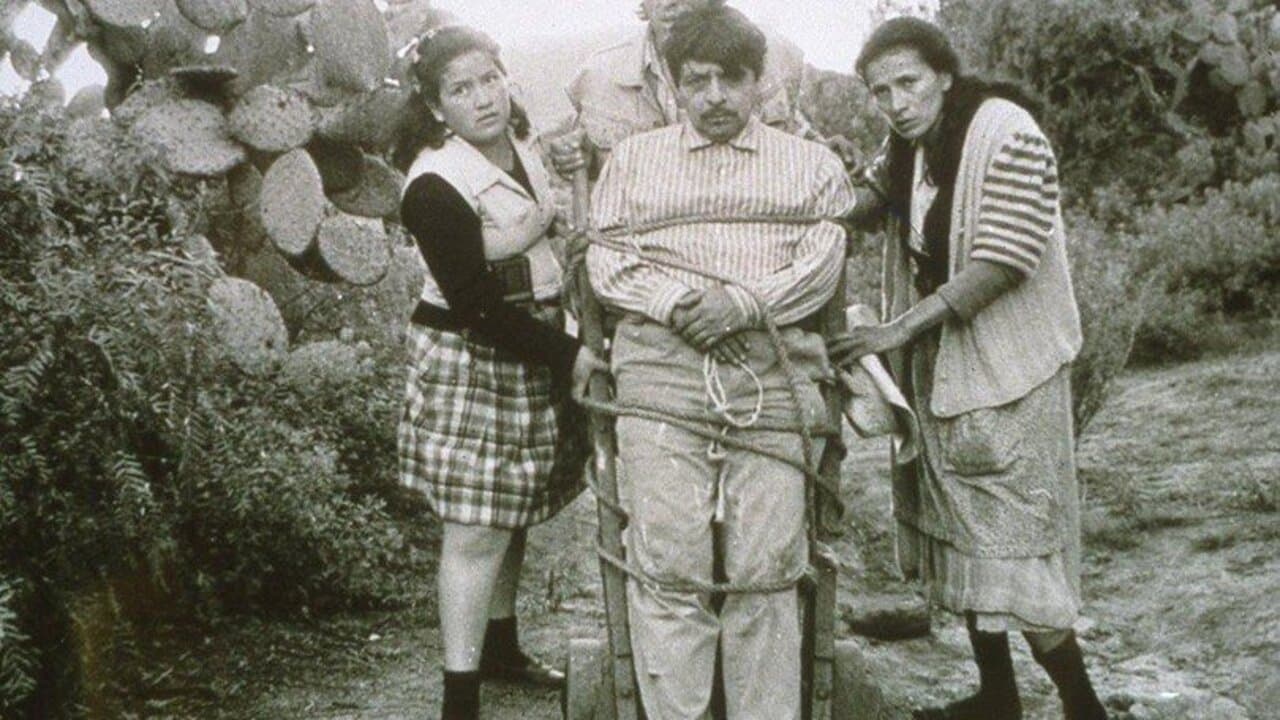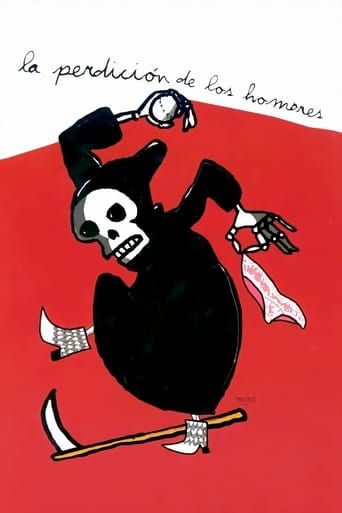Edgar Soberon Torchia
Ripstein is México's most respected filmmaker. He belongs to the 1970's generation responsible for the so-called "new Mexican cinema", which produced some great works, as Paul Leduc's "Reed: México insurgente" and Felipe Cazals' "Canoa". Ripstein was one of the first to gain recognition with his very good B&W film, "Tiempo de morir" (1965), written directly for the screen by Gabriel García Márquez and Carlos Fuentes. It has rained a lot between this movie and his 1999 screen version of García Márquez' novel "El coronel no tiene quien le escriba". In the meantime, he married screenwriter Paz Alicia Garciadiego, and since their first collaboration "El imperio de la fortuna" (1986, from Juan Rulfo's "El gallo de oro"), Ripstein's cinematic world has become overblown, slow, morbid, grotesque and misanthropic. One cannot blame Garciadiego for this, but she surely has a lot to do with it. "Profundo carmesí"(1996), their retelling of the story told in "The Honeymoon Killers", is a good example of this couple's peculiar taste. In "La perdición de los hombres", Ripstein once again enters the world of misery, though his characters are not precisely outcasts as the fat nurse and her gigolo lover. This time he returns to his early free-style -it's even in black and white-, as he tells the stories of normal people, who choose weird solutions to their predicaments and whose dreams occupy the same space and tone as their daily actions on the screen. Garciadiego rarely paints a "nice" male character. So here there are not only one but three machos, who play baseball and believe that man's downfall is personified in women (in fact, the movie's title is a verse from a popular ranchera that goes "Man's downfall / Is the damned woman"). Garciadiego built her story a la "Pulp Fiction", with the first act told after the resolution, so one has to wait quite a bit to know why two of the guys kill their pal, known as the "King of the Baseball Diamond", while his widow fights for his corpse with his younger and prettier lover. I cannot deny it's funny. Sometimes very funny, mainly because Patricia Reyes Spíndola (as the widow, an underrated fine actress that Ripstein turned into a star when she played lesbian singer Lucha Reyes in his sordid 1994 biopic "La reina de la noche") is such a good actress, that she carries most of the film. On the other hand, Ripstein uses long takes by two virtuoso cameramen who follow the players dynamically in the tightest spaces. For me, who hated three Ripstein/Garciadiego films in succession ("Principio y fin" is the third) and avoided his most recent ones ("El coronel..." and "El evangelio de las maravillas"), this was a sort of reconciliation with their cinema.
mweston
As the film opens, we see two men preparing to ambush a third man, who is walking along a trail with a wheelbarrow. They kill him, take him to a house, and steal his fancy boots. Later we are introduced to the victim's widow and his girlfriend.To me, the film started slow, and didn't become very interesting until at least halfway through, although it was often funny throughout. Near the end we see the opening scene again, with context to understand better what was really happening.This dark comedy is filmed in a dusty looking black and white. It's possible that if I had been less tired that I would have liked it better, but as it stands I can only give it a very marginal recommendation. Seen at the San Francisco International Film Festival on 4/30/2002.

